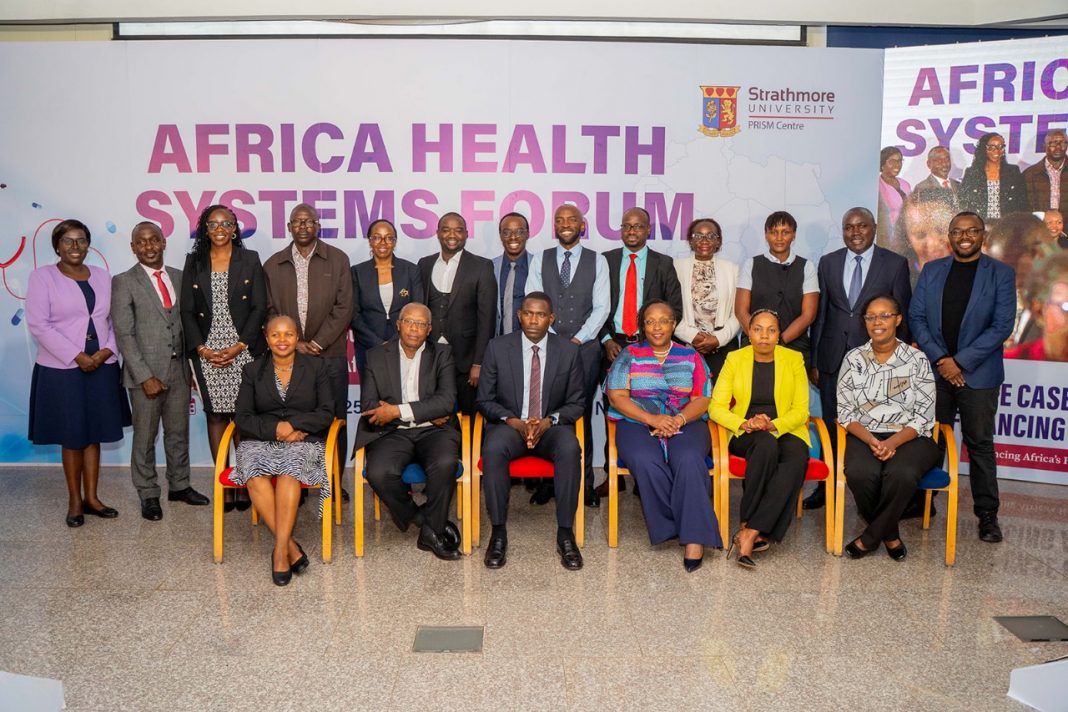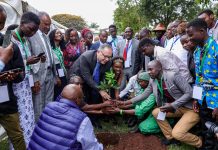By Job Okoth
African health experts have called for urgent action to build locally funded and sustainable health systems as donor support continues to decline.
Speaking at the Africa Health Systems Forum 2025 in Kenya’s capital, Nairobi, they said the continent must stop relying on external aid and instead invest in home-grown solutions that strengthen resilience and equity in healthcare delivery.
The call came amid growing concern following the 2025 USAID funding cuts, which disrupted long-running health programs across Africa. The agency had been one of the continent’s major donors in combating HIV/AIDS, malaria, and other infectious diseases.
According to health policy analysts, the cuts—part of broader U.S. policy shifts—have forced African nations to rethink their financial structures and explore sustainable, locally driven health financing models.
According to Dr. Ouma Oluga, Principal Secretary at the State Department for Medical Services, health should be viewed as a key driver of economic growth—not just a social service.
He noted that viewing health from an economic perspective is not necessarily how to finance health, but what health means in the overall transformative agenda for the country.
“Many people look at health from a service delivery social rights issue, which is okay. But then they don’t appreciate the input of health in driving countries, in terms of healthy populations, being able to be productive, but more importantly, in terms of lost man-hours,” Oluga said.
He observed that healthcare actions should be viewed in terms of their broader impact on overall health and economic viability, not merely as a means to treat individual illnesses, for instance, keeping people alive but not productive.
“We should understand what finance means for health before we talk about how to finance it,” Oluga underscored.
Dr. Kanyenje Gakombe, Chair of the Kenya Healthcare Federation, said that many health facilities and training institutions were established through donor support, but that model is no longer sustainable. “It’ll be harder for the U.S. or U.K. to keep giving us money,” he said. “Borrowed funds aren’t sustainable. No country ever developed through foreigners. We have to mobilize our own resources to meet our health goals.”
According to Gakombe, the funding gap is already causing significant strain on service delivery, calling for more accountability and smarter resource allocation. He emphasized the need for strong ICT systems to track health financing and outcomes.
“We should move from ownership to output,” he added. “Building efficient digital systems enhances transparency and trust in how health funds are managed.”
Similarly, Dr. Elizabeth Wangia, former Director of Health Financing at the Ministry of Health, said the country needs to strengthen its data systems for informed decision-making. “We need to build a digital superhighway for health data,” she explained. “Without accurate data, we cannot plan effectively or measure progress.”
According to Prof. Francis Wafula, Associate Professor of Health Systems and Policy at Strathmore University, the burden of disease in Africa—especially non-communicable illnesses like cancer, diabetes, and hypertension—continues to rise even as external funding declines.
Calling for affordable innovations to tackle these diseases, he said: “We’re seeing a growing number of young innovators developing solutions to improve lives and make profits. But these innovations often make healthcare more expensive, and as funding dries up, we must use available resources to upgrade care and purchase essential equipment.”
Dr. Ann Michiva, Health Systems Specialist and County Director for ThinkWell, noted that Africa’s health priorities have long been skewed by donor influence. “A lot of our policies focus on HIV and malaria at the expense of non-communicable diseases,” she said.
“During COVID-19, every country turned inward to focus on its citizens, leaving Africa exposed. We must invest in local manufacturing and ensure efficiency in how our limited resources are used.”
As the meeting ended, participants agreed that resilience will not come from external partners but from Africa’s own commitment to re-engineer financing models, strengthen local manufacturing, and foster accountable leadership. The message from Strathmore was clear—the future of African healthcare lies in African hands.







